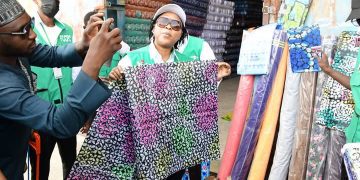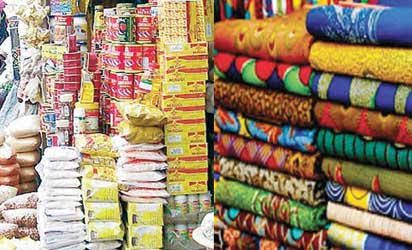By Ayobami Ife, Abeokuta
ABEOKUTA: Nigerian Export Promotion Council (NEPCO) has called on Nigerians to change their perspective about Made-in-Nigeria goods and services, saying negative perception and attendant poor patronage of home made products remains a major obstacle to growing the economy.
Speaking at the Strategic Focus Group Meeting on Made-in-Nigeria Products in Abeokuta, the Ogun State capital, the NEPC head of products and market department, Hadiza Kashiat, identified negative perception as the biggest challenge facing the market of Nigerian-made products and services.
The focus group meeting was organized by the National Agency for Science and Engineering Infrastructure(NASENI) to bring together stakeholders—the manufacturers, academia, SMEs, and industry leaders—to explore ways to boost the productivity and acceptance of Made-in-Nigeria products and services.
Kashiat urged Nigerians to emulate the Chinese, who prioritised local industries and patronized their products to achieve global economic dominance.
She said a lot of made – in – Nigeria products are exported out of the country and rebranded in international markets under foreign labels which Nigerians buy and bring back to the country without knowing they were manufactured in Nigeria.
She revealed that Nigeria has one of the best lubricants when compared to others globally, adding that Malaysia is still exporting palm oil from Nigeria, an attestation that quality home – made products and services abound in Nigeria but require a change of perception to get the needed acceptance.
She stated, “We have to change our perspectives about Nigeria and made – in – Nigeria goods. We need to look in ward and understand that this is our country. A lot of made – in – Nigeria products are good, we might have some that are not yet there but a lot of them are good. I can speak from the aspect of products going out of the country.
“A lot of products are exported and rebranded under foreign labels when they leave this country, yet we refuse to acknowledge their quality. We have our lubricants for instance. Nigerian lubricant is one of the best in the world when compared to other countries. We have our ginger and sesame seeds.
“Malaysia is still coming to Nigeria to export palm oil out of this country due to its superior quality. So, that means we have quality made – in – Nigeria products in this country. We need to look at how we see made- in – products. If we say no to made – in – Nigeria products, how do we grow our economy? We can’t grow our economy if we refuse to buy.
“China did not grow by abandoning its local products. At some point, the country locked its economy to develop its industries. Nigeria must do the same by supporting its manufacturers and consuming what we produce.”
Also speaking, Babajide Sawyerr from NASENI’s Lagos Office said the engagement aligned with the agency’s mandate to drive economic growth through increased local patronage.
Sawyerr noted that addressing the negative perception surrounding local goods requires a collective effort.
“Yes, Nigerian-made products face challenges of stigmatization, but we are working with relevant stakeholders to change this perception. The truth is, many Nigerian products are of high quality, and we should patronise them to strengthen the economy,” he added.
For Ibrahim Idris from the Nigerian Association of Chambers of Commerce, Industry, Mines, and Agriculture (NACCIMA), high energy cost, forex instability, poor research funding in universities, and the production of substandard goods are factors stymieing the country’s march to industrial and economic growth.
ADVERTISEMENT









































